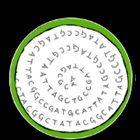Genomic Selection (GS) is an advanced form of marker assisted selection where high density DNA markers are used to model the phenotypic variation of a breeding population. By genotyping thousands of DNA polymorphisms distributed over the whole genome, causative polymorphisms underlying the phenotype are expected to be in linkage disequilibrium with at least one of the markers. GS models are then used to obtain genomic estimated breeding values (GEBV) of progeny from the breeding population in subsequent generations, using only genetic marker information. This approach has been used extensively in the last decade by the cattle industry, and has resulted in unprecedented genetic gains. Conventional tree breeding is a lengthy and costly enterprise, because a cycle of selection takes several decades and experimental trials require large areas. Thus, advanced tree breeding programs worldwide are developing GS capabilities with several programs being operational. For our project, we will be using sequence capture methods in genomic regions that are selected by designer probes found to have rich genetic information correlated with targeted phenotypes.
 PHENOTYPING
PHENOTYPING GENOTYPING
GENOTYPING